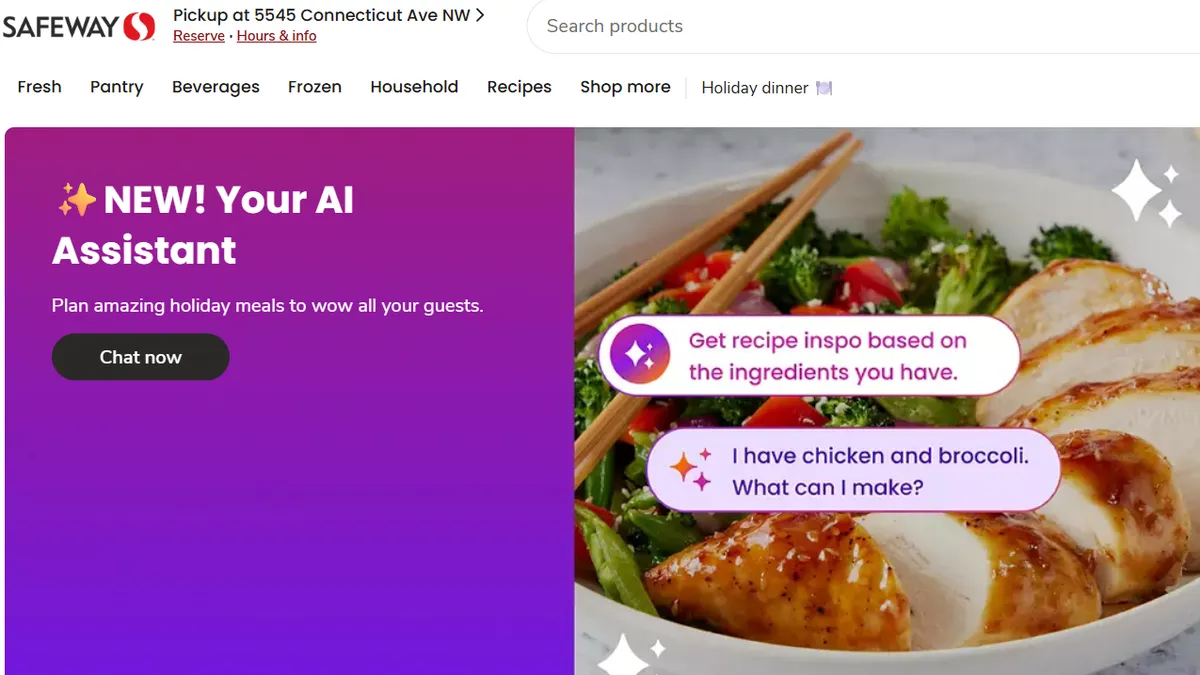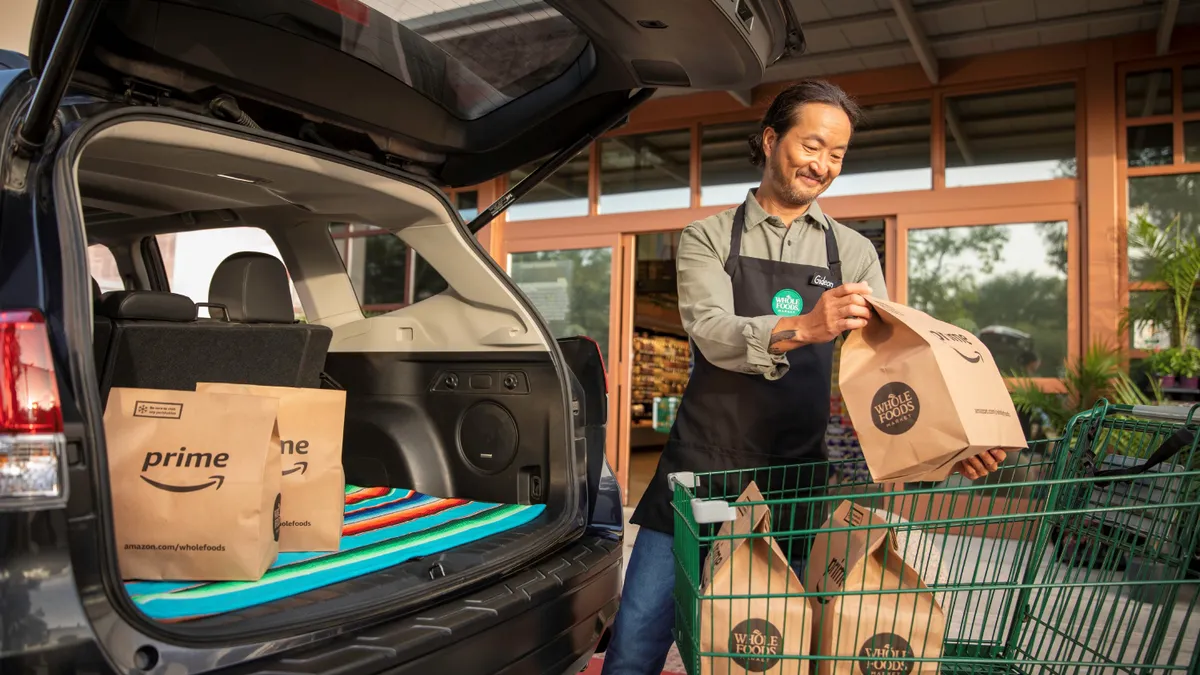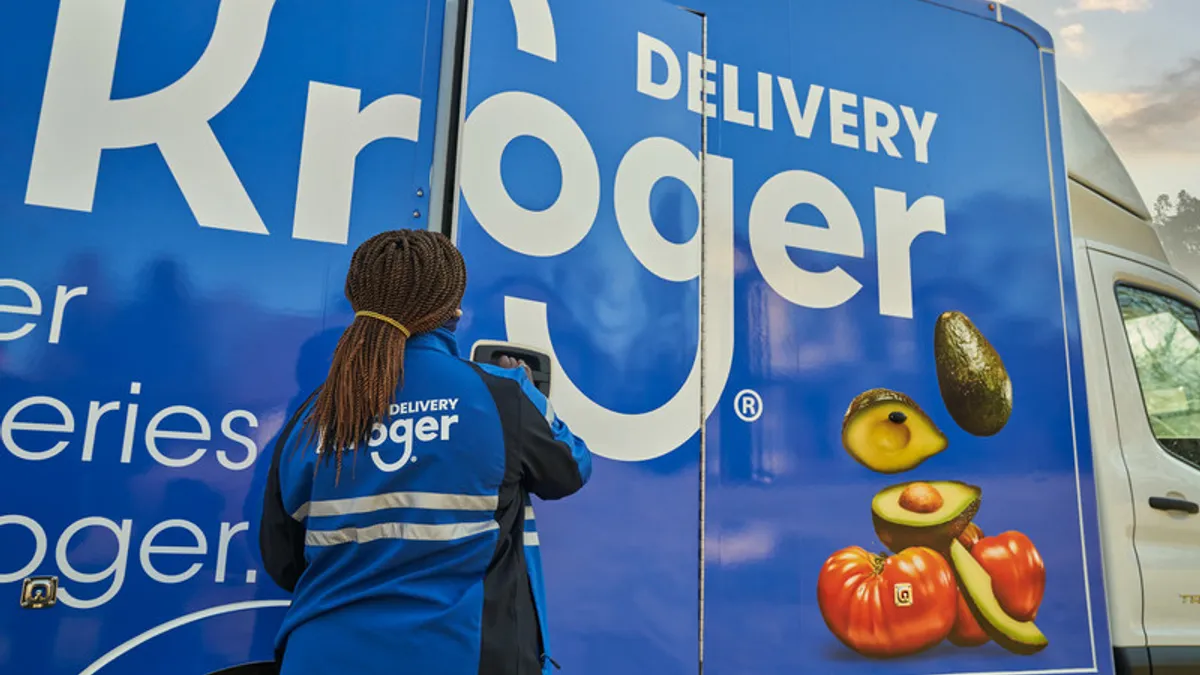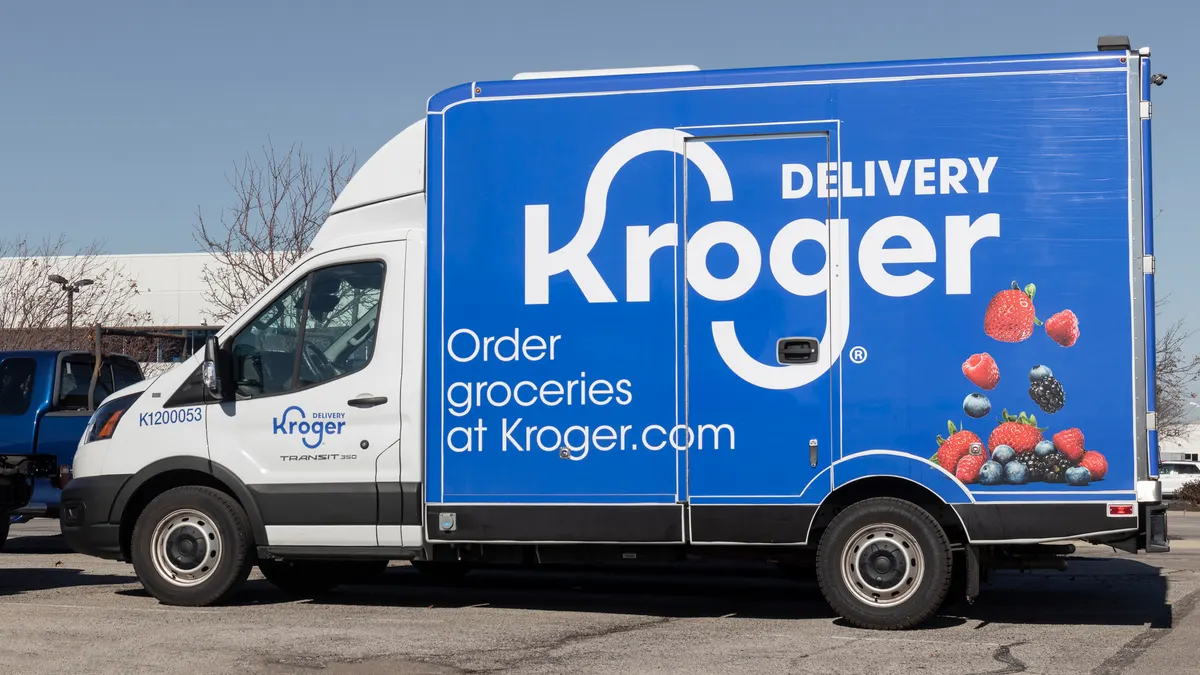The Wall Street Journal reported Tuesday that Amazon has signed more than a dozen leases for grocery stores in and around Los Angeles, citing anonymous sources close to the company. Amazon has not confirmed the news or released any information publicly, but if the reports prove accurate, its newest brick-and-mortar business could launch as early as the end of this year.
But what will the chain really look like and how will it operate? What will it be named? Will it sell Amazon meal kits? There are dozens of questions swirling around the move. Here’s a closer look at some of the most fundamental ones.
1. How will it approach e-commerce?
Amazon has the opportunity to create a store that's truly optimized for in-person and online sales. Given the company's focus on speed, expect stores to have back-of-house systems built for quick delivery and pickup fulfillment. The real question, though, is how e-commerce might integrate with the store experience, and vice versa.
Amazon could integrate delivery with its AmazonFresh service. Fresh hasn't been a strong asset for Amazon, but with additional cities coming online and core Prime shoppers already signed up, the service could become a physical-digital crossover similar to Ahold Delhaize's Peapod.
Whole Foods has been a useful testing ground for Amazon with grocery delivery and click-and-collect. The company has rolled out grocery delivery to Prime members in 88 metro areas across the U.S. this year, and notes the service is a bright spot in otherwise tepid sales for the chain.
2. What will the checkout experience be like?
With the capabilities of Amazon Go at its disposal, it's easy to assume frictionless checkout will be part of Amazon's brick-and-mortar grocery experience. However, the technology hasn't yet scaled anywhere near the anticipated size of these grocery stores, which are expected to be around 20,000 to 40,000 square feet.
One possibility is that Amazon could apply the Go-style checkout experience to individual departments, like grab-and-go.
It's unlikely that its stores will be fully automated or checkout-free any time soon, so shoppers should expect a traditional checkout experience with some bells and whistles — self-checkout kiosks or perhaps some type of scan-and-go functionality.
3. How will it integrate with the broader Amazon estate?
Despite its struggles with grocery, Amazon has remained a leader in online packaged food and beverage sales. The e-tailer could use its new stores as quick-delivery hubs for its best-selling products, promoting the brand within its product pages and pushing shoppers to build bigger baskets.
There's also the question of how Amazon will leverage Prime at the new chain. Whole Foods has focused mainly on price cuts under the 100-million-strong membership program, but there's certainly an opportunity for more, like special events and services.
Within its grocery operations, Amazon has Fresh, Prime Pantry and Whole Foods. Add to that a brick-and-mortar chain and things could quickly become disjointed for the retailer. To succeed in grocery, Amazon may need to deliver a more unified experience across its various properties.
4. What role will private label play?
Retailers like Aldi and Trader Joe's have illustrated the success a company can have with strong private label offerings. Amazon has been hard at work developing its private label food and beverage offerings online this year, launching a line of private label milk as well as condiments, oils and vinegars. It also offers Amazon-branded meal kits at select Whole Foods stores.
Amazon has been investing in staff to support private label development, with multiple job listing affiliated with private label being listed on its website and LinkedIn. While there's not enough private label assortment to fill out an entire store now, the company is making progress — which could indicate a focus on in-store private label over time.
5. Will the concept expand beyond major metro areas?
According to reports, Amazon is launching its grocery store in the Los Angeles metro area and also has plans for stores in Chicago and Philadelphia. But if the retailer wants to secure shopper loyalty and appeal to its massive Prime membership base, it will need to expand beyond large metro and coastal areas into other locales in regions throughout the U.S.
6. How will the chain address meals?
While Whole Foods specializes in made-to-order meals and freshly prepared foods, Amazon's specialty is packaged goods. The e-tailer has introduced meal kits and grab-and-go offerings at Amazon Go stores, but the meal kits have not performed well and the company is considering dropping them from the stores, according to a report by The Information.
The Wall Street Journal noted plans for on-site kitchens in Amazon's new grocery stores, which indicates a push for fresher food options. Grab-and-go is the obvious answer, given its role in Amazon Go stores, but Amazon could also take a page from Whole Foods' successful foodservice operation to offer hot bars, fresh sushi, made-to-order meals and other dine-in options.
7. What will really differentiate Amazon's grocery chain?
The U.S is saturated with supermarkets, from traditional chains to discounters and specialty stores. While Amazon may be a behemoth, it is not guaranteed grocery success unless the in-store experience stands out to shoppers in some way.
Early reports have noted that Amazon's stores will feature mainstream products like Coke and Oreos, which have struggled with sales growth in recent years. While integration with Prime membership and e-commerce could be enough for some shoppers, others will need much more.
According to Kevin Sterneckert, chief marketing officer at Symphony RetailAI, existing grocers have a slight advantage over Amazon when it comes to the intricacies of supply chain, fulfillment and distribution. They also have a unique understanding of consumer demand between fresh and center store.
"With that in mind, Amazon will need seasoned experts to pull this off – I also expect to see Amazon looking for seasoned executives in the industry with the right experience, picking off talent across the business as they go," Sterneckert wrote in an email to Grocery Dive.
Amazon has an opportunity to bring a fresh approach to grocery retail, but as of now there is no indication of what the true differentiator will be.



















